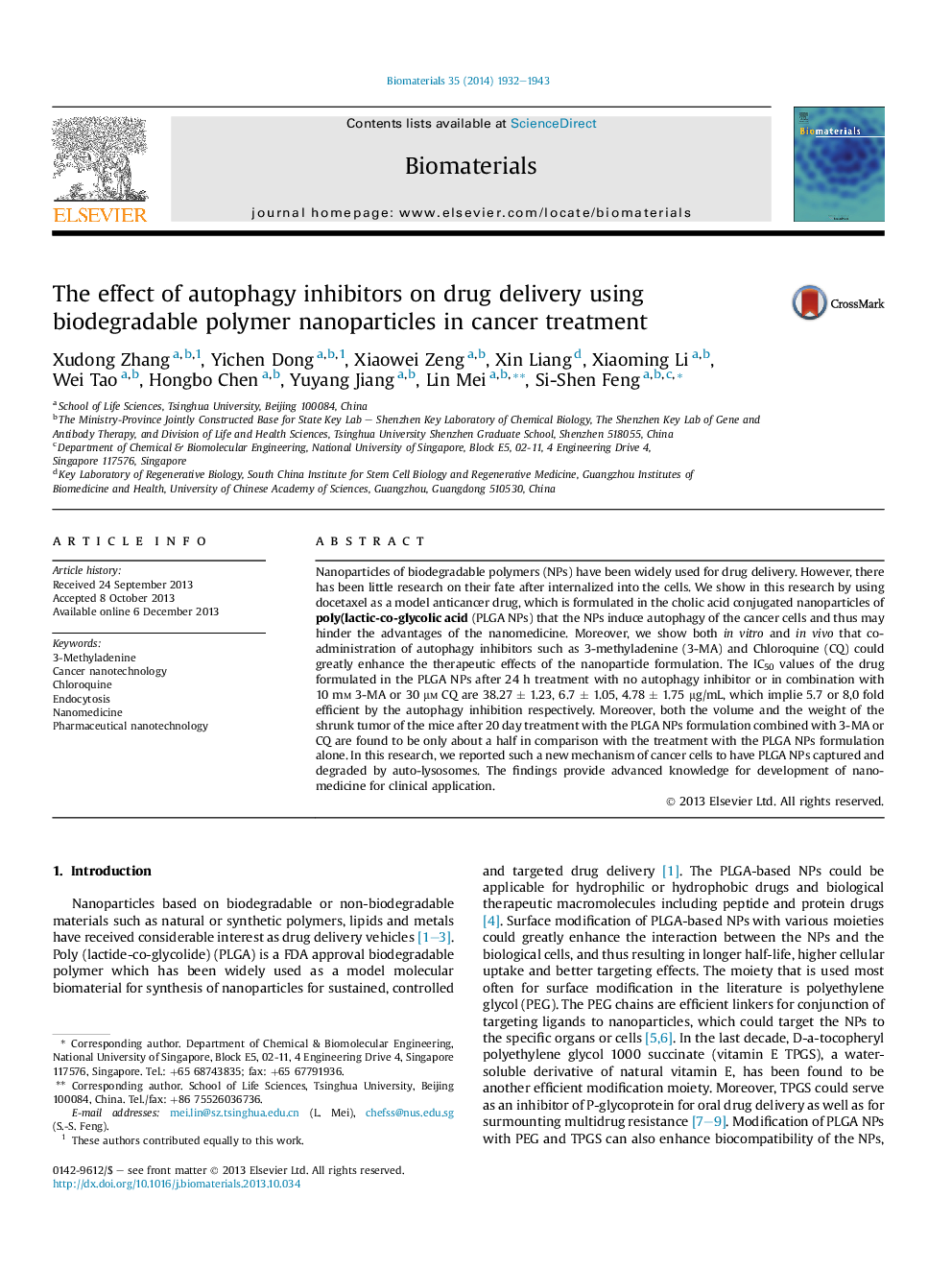| Article ID | Journal | Published Year | Pages | File Type |
|---|---|---|---|---|
| 6004 | Biomaterials | 2014 | 12 Pages |
Nanoparticles of biodegradable polymers (NPs) have been widely used for drug delivery. However, there has been little research on their fate after internalized into the cells. We show in this research by using docetaxel as a model anticancer drug, which is formulated in the cholic acid conjugated nanoparticles of poly(lactic-co-glycolic acid (PLGA NPs) that the NPs induce autophagy of the cancer cells and thus may hinder the advantages of the nanomedicine. Moreover, we show both in vitro and in vivo that co-administration of autophagy inhibitors such as 3-methyladenine (3-MA) and Chloroquine (CQ) could greatly enhance the therapeutic effects of the nanoparticle formulation. The IC50 values of the drug formulated in the PLGA NPs after 24 h treatment with no autophagy inhibitor or in combination with 10 mm 3-MA or 30 μm CQ are 38.27 ± 1.23, 6.7 ± 1.05, 4.78 ± 1.75 μg/mL, which implie 5.7 or 8,0 fold efficient by the autophagy inhibition respectively. Moreover, both the volume and the weight of the shrunk tumor of the mice after 20 day treatment with the PLGA NPs formulation combined with 3-MA or CQ are found to be only about a half in comparison with the treatment with the PLGA NPs formulation alone. In this research, we reported such a new mechanism of cancer cells to have PLGA NPs captured and degraded by auto-lysosomes. The findings provide advanced knowledge for development of nanomedicine for clinical application.
